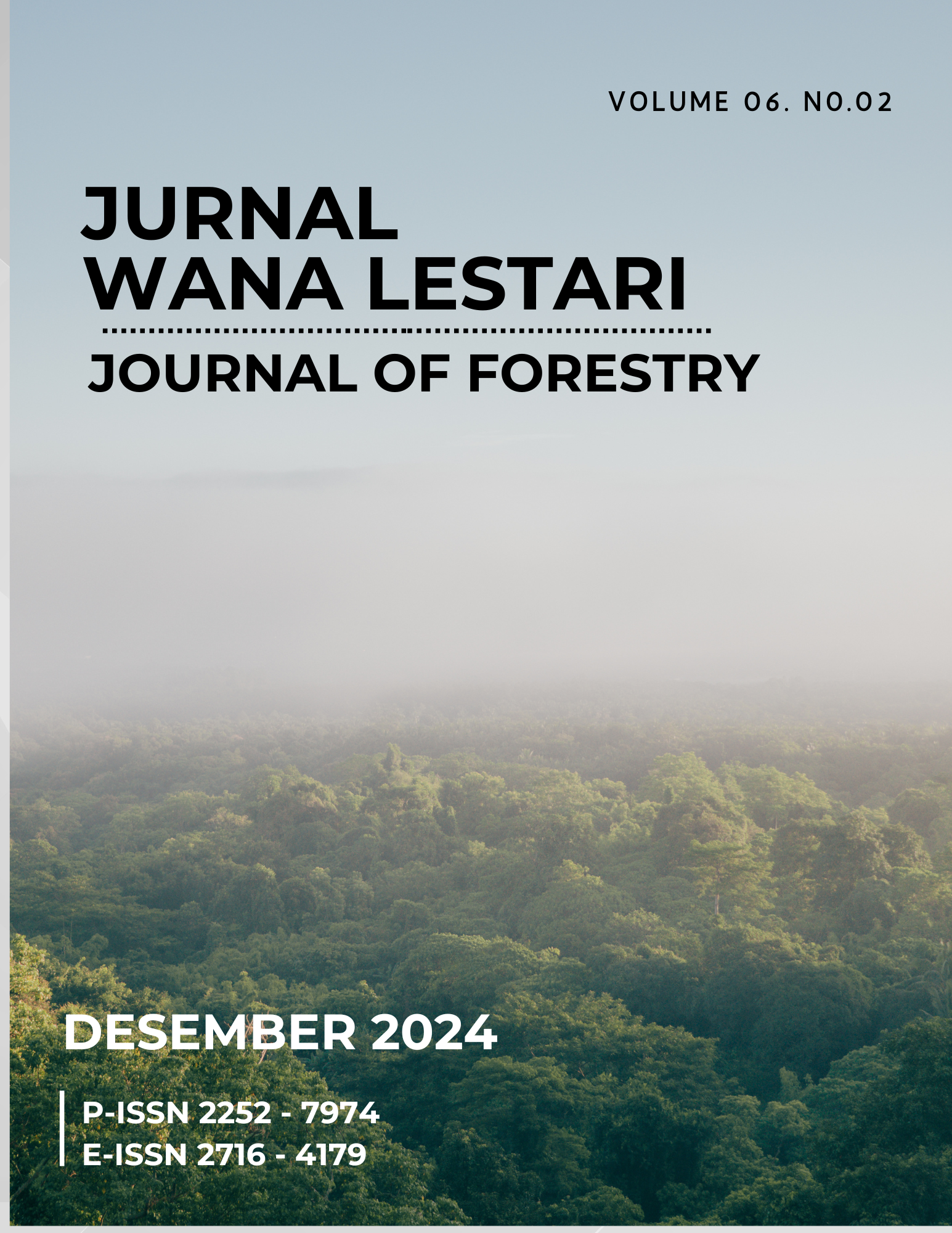Analisis Kelembagaan Kelompok Tani Hutan (KTH) pada Area Hutan Kemasyarakatan (Studi Kasus Desa Bomari, Kecamatan Bajawa, Kabupaten Ngada)
Abstract
The existence of forests is threatened due to increased population growth, resulting in land use issues becoming more complex and very competitive. To avoid increasing damage, it is necessary to emphasize the community who has an important role, one of the strategies used is the Social Forestry scheme in the form of community forests (HKm), the HKm Program involving the community is expected to be able to foster and instill a sense of community ownership of forests as one of the stakeholders that will determine the success of sustainable development of forest ecosystems and improve community welfare through the institution of Forest Farmer Groups (KTH). The research was conducted in the Wolobobo Community Forest area, Bajawa, Ngada Regency, this research was conducted to analyze the KTH Institution in the Wolobobo Community Forest Area. The research was conducted for 2 months August - September 2023. Respondents in this study came from KTH More mesu with a total of 28 members. The method used in this research is a qualitative method, using Stakeholder analysis with the 4R framework, namely Right, Responsibilities, Revenue/returns, Relationship. The results of the research obtained through the interview method with the help of questionnaires show that the Forest Farmer Group Institution has not been effective due to the lack of guidance and assistance to the community, lack of awareness of responsibility by each stakeholder role, low community income and relationships between stakeholders that have not gone well

 Maria Margaretha Uge(1*)
Maria Margaretha Uge(1*)







